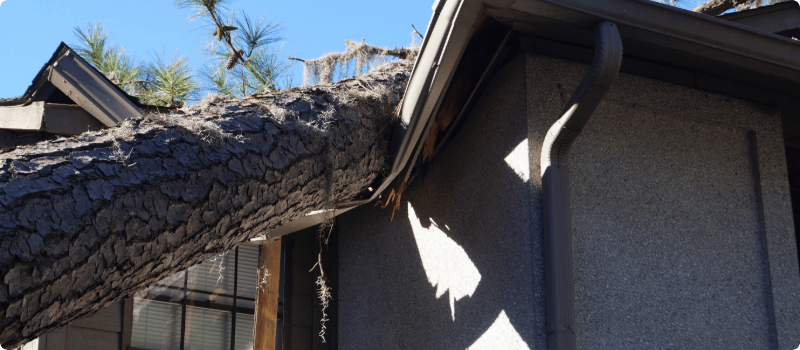What is a named perils policy?
Updated March 19, 2024 . AmFam Team
In the insurance industry, a named peril is a term used to define a specific damage or loss stated by “name” in your policy. What does peril mean in insurance? Typically, for a claim to be covered, it must be caused by a peril covered under the policy.

Take an “accidental fire” as an example of a named peril. If a sudden fire in your kitchen were to destroy your stove, cabinets, floor – basically your whole kitchen — your claim would likely be covered, as fire is a named peril in the policy and is a covered cause of loss.
Here’s a list of examples of named perils:
- Fire or lightning
- Hail or windstorm
- Riot
- Explosion
- Aircraft
- Smoke
- Vehicles
- Falling objects
- Theft
With a named peril policy, coverage will only be applied to the specific risks named within that policy. Named peril policies are great base coverage for those looking to add further “a la carte” coverages to better protect their personal property.
A more common and comprehensive way to protect your property is with “open peril” coverage. Also called “all-risks insurance,” open perils coverage casts a wider net and can cover your personal property more completely. Most causes of loss are covered under an open peril policy unless they are listed as an excluded cause of loss.
Named perils coverage is optimal for those who want to pick and choose the types of perils that they need. It’s great because you can select the coverage options that work for you. Depending on the insurance agency, some will only offer pre-packaged policies that can force your premium up for coverage you don’t want or need.
At American Family, we’re an insurance company that will let you make the important decisions on property insurance and where you spend your hard-earned money. We’ll look at both options to help you make a better-informed decision on what type of insurance works best for you.

What is the difference between a named perils policy and an open perils policy?
Almost directly opposite to a named perils policy, open perils coverage offers risk coverage for any loss that’s not specifically listed as an exclusion in the policy. With open peril coverage, your personal property can be better protected because you’re covered for everything except the specifically excluded loss type listed in the contract.
So, what exactly does open perils mean in insurance terms?
Also known as “special perils” and “special form” insurance, insurance of this type casts a wide net around covered events. This type of coverage works well for homeowners looking for broad-form insurance.
And if you’re hoping to add coverage for a named item, you may be able to add that additional coverage as a “rider” or “endorsement” to your open perils policy. One example might be the purchasing of additional earthquake coverage, which is an excluded cause of loss under the homeowners policy. You’ll likely pay a higher premium, but you’ll be insured with the coverage you need.
Which type of policy is right for me?
Now that you know the difference between the two, consider the risks your home faces. Is your home near a fault line? Are you within a floodplain, or is your neighborhood at risk of wildfires? As much as these aren’t easy things to consider, choosing a policy that fully defines the right types of loss to protect your home is important.
The type of event that results in damage to your personal property — with an open perils agreement in place — will be used to determine your eligibility. For instance, wear and tear is a common exclusion in an open peril contract. If your dishwasher stops working because it’s old, wear and tear is not a covered cause of loss, so your policy would not cover the claim.
Discuss open peril vs. named peril policies with an agent today
Your American Family Insurance agent can help you navigate the decision to select the right type of homeowners insurance. Take a few moments to contact your agent today. With a customized policy, you’ll find more peace of mind knowing that you’ve got the protection you need to keep your and your family’s finances secure.
This information represents only a brief description of coverages, is not part of your policy, and is not a promise or guarantee of coverage. If there is any conflict between this information and your policy, the provisions of the policy will prevail. Insurance policy terms and conditions may apply. Exclusions may apply to policies, endorsements, or riders. Coverage may vary by state and may be subject to change. Some products are not available in every state. Please read your policy and contact your agent for assistance.

